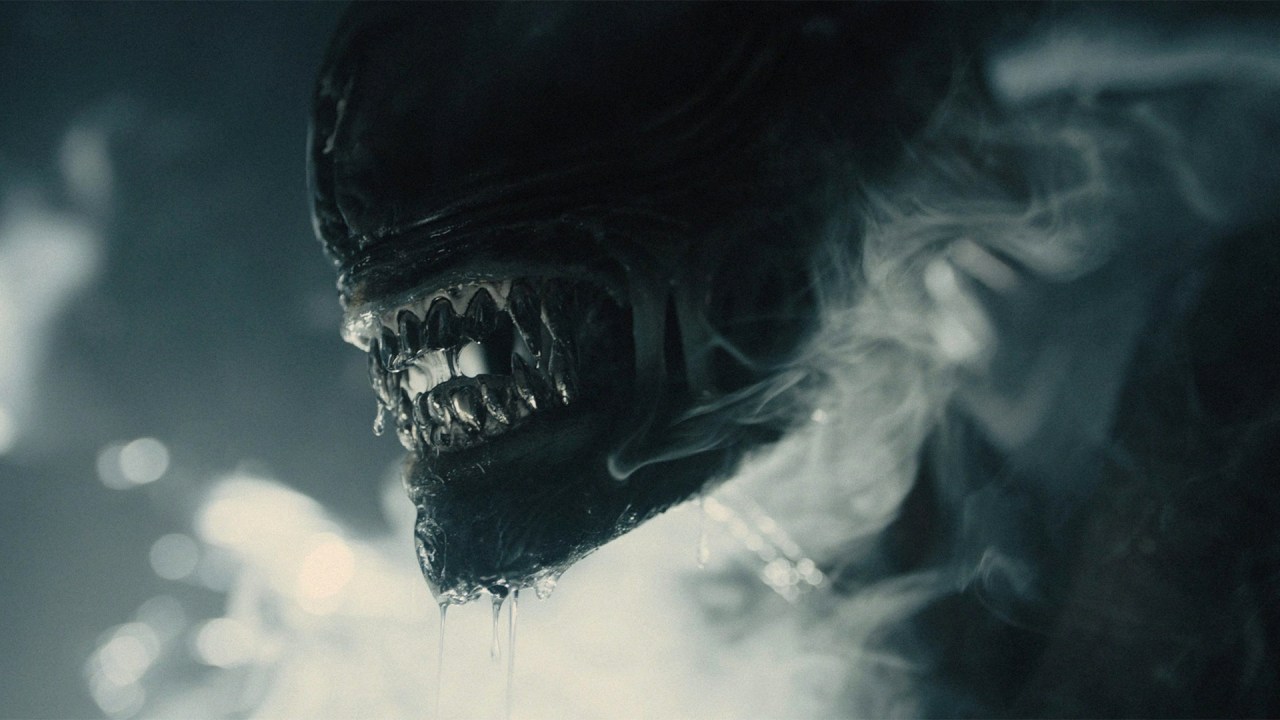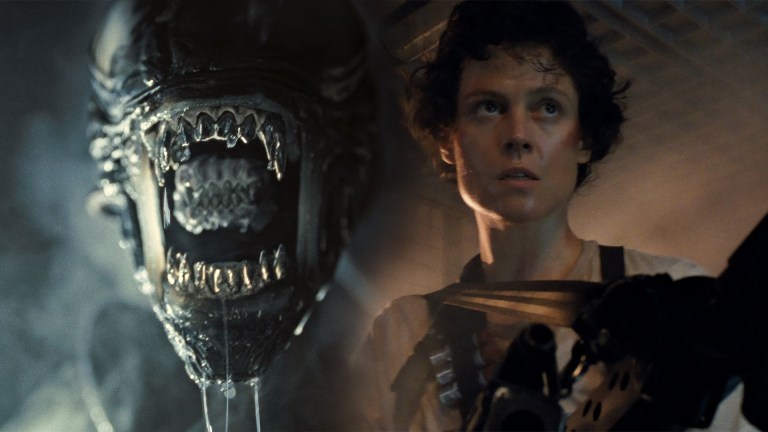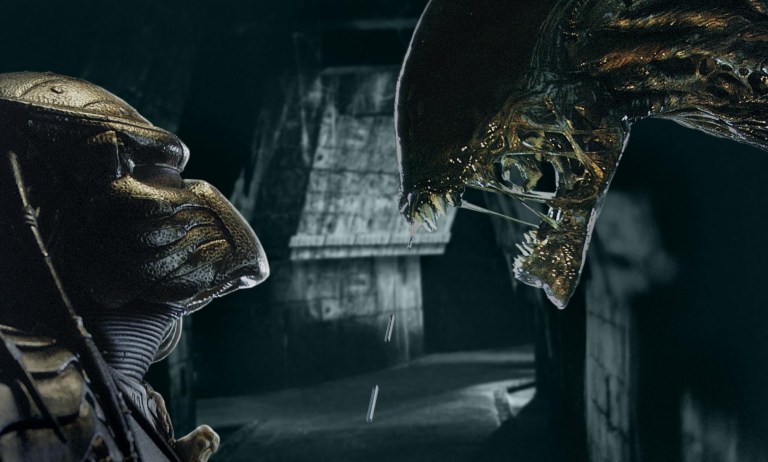
‘Alien: Romulus’ Cares, Scares, and Dares to Be Controversial
Fede Álvarez's Alien: Romulus brings the franchise back to its horror roots, but it also pays homage to the most controversial aspects of it. Here's our review.
Fede Álvarez’s Alien: Romulus brings the franchise back to its horror roots, but it also pays homage to the most controversial aspects of it. Here’s our review.
For many fans, the Alien franchise officially ended after James Cameron’s Aliens. Everything that came afterward never felt like it matched the standard of the first two films as the story ventured into strange terrains. Never mind Ridley Scott’s much talked-about prequels, Prometheus and Alien: Covenant, that seemed obsessed with philosophical metaphors and the creation (as well as the meaning) of life. Consequently, the anticipation for the Ellen Ripley-less Alien: Romulus was about as high as a Chihuahua looking forward to a bath.
Against all odds, though, filmmaker Fede Álvarez manages to create a standalone film within a larger universe that respects the past and pushes the ideas further. Make no mistake about it: The final act polarizes, but it showcases how Álvarez paid attention to every minute detail of the films that came before his own. In fact, Alien: Romulus might be the missing link that helps to change the sentiment of everything released post-Aliens.
Alien: Romulus boasts less lore, but more gore
Taking place between the events of Alien and Aliens, Alien: Romulus tells the story of a group of young colonists – Tyler (Archie Renaux), Bjorn (Spike Fearn), Kay (Isabela Merced), Navarro (Aileen Wu), Rain (Cailee Spaeny), and Andy (David Jonsson) – who dream of a better life. When they find out about an abandoned space station, they explore it for cryo chambers and fuel as they plot a course to a new planet to call home. Unfortunately, they also learn that anything associated with the Weyland-Yutani Corporation is bound to feature a Xenomorph or two – or a hundred – on board.
Alien: Romulus refuses to complicate the setup, taking the premise back to the start in a similar manner as Ridley Scott’s Alien while upping the stakes. The colonists on board the space station aren’t Colonial Marines or a highly trained space crew; they’re ordinary young adults trapped in an isolated setting with not one but many creatures. Their only mission is to find a way out of danger. It’s a simple but effective throwback to the film that Scott once famously pitched as “Jaws in space.”
Rather than drift too far into the sci-fi or action genres, Fede Álvarez applies the original horror sensibility from Alien to Alien: Romulus. He values terror through what can’t be seen and when evil shows its face, he utilizes mostly practical effects to showcase how devastating and ruthless these creatures can be. Anyone who has watched Álvarez’s 2013 adaptation of Evil Dead also knows he isn’t afraid to amp up the gore factor, and he does the same here with a number of squeamish scenes that turn the stomach.
The film doesn’t wreak havoc across the timeline
The Alien timeline spans centuries. Since Alien: Romulus doesn’t take place in chronological order, it slots in between the first two films where not much had been revealed about the Xenomorphs or Weyland-Yutani yet. However, this doesn’t change the fact that the other movies have established lore that filmmakers must keep in the back of their minds since it’s now canon. Resultantly, this leaves Fede Álvarez in a pickle since he can’t show the blatant knowledge of future developments in the story, but he needs to abide by the timeline’s rules.
For the most part, Alien: Romulus gets it right, though there are one or two slip-ups here. That said, Álvarez lays the impressive groundwork for the chronological sequels by touching upon key events that might not have been shown before but would help to fill certain narrative gaps – especially in terms of how far along Weyland-Yutani is in messing with Xenomorph DNA.
Unquestionably, Álvarez and his co-writer Rodo Sayagues understand the Alien lore inside and out, as they not only find a way to connect their own threads to the sequels but also the prequels. Case in point: The title of the film. With the space station featuring two sections known as Romulus and Remus, Álvarez and Sayagues take a page out of Ridley Scott’s philosophical book to equate the humans and creatures as brothers of sorts. In the mythology, Romulus kills Remus to take the empire of Rome. The analogy works here, establishing the fractured relationship between the humans and aliens and how they can’t coexist. In the end, one must die for the other to rule. The question is: Who is Romulus and who is Remus in this scenario?
A controversial tip of the hat to Alien Resurrection
The Jean-Pierre Jeunet-directed Alien Resurrection proves to be one of the most controversial entries in the franchise – mostly due to its divisive third act that sees the rise of a Newborn, a hybrid between human and alien. The more that one thinks about it, though, the more the concept makes sense. As the films demonstrate, the DNA of the creatures evolve with every other organism they infect. With all of Weyland-Yutani and United Systems Military’s tinkering, it’s only logical that a monstrosity like the Newborn would be an inevitable result of science and evolution. However, since humans are human and never consider the consequences of their actions, it becomes something of an Oppenheimer situation where people create the very weapon to destroy everything.
Without going into too many spoilers, Alien: Romulus‘ third act explores the melting point of evolution and science in much the same way as Alien Resurrection. Again, touching upon the concept of Romulus and Remus, it questions if humans and aliens can work together to become a superpower rather than foes. Weyland-Yutani certainly believes so, but those fools can’t even be trusted with organizing a Pizza Friday for their employees.
Undoubtedly, the finale of Alien: Romulus divides the audience right down the middle. Those who appreciate how it ties into the bigger picture will love the nod to Resurrection, while others might have hoped to see it avoid one of the franchise’s most controversial films. Even so, no one can deny that Alien: Romulus respects every aspect of what came before it – for better or worse. It’s the ultimate love letter written both in blood and acid.











